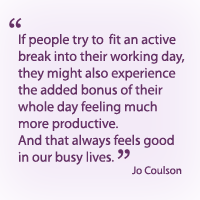Published: December 18, 2008
The book is at least three years away from publication, but it is already stirring bitter debates over a new set of possible psychiatric disorders.
Is compulsive shopping a mental problem? Do children who continually recoil from sights and sounds suffer from sensory problems — or just need extra attention? Should a fetish be considered a mental disorder, as many now are?
Panels of psychiatrists are hashing out just such questions, and their answers — to be published in the fifth edition of the Diagnostic and Statistical Manual of Mental Disorders — will have consequences for insurance reimbursement, research and individuals’ psychological identity for years to come. Link to continue reading
Source: New York Times
Published: December 17, 2008
 A new universal test to predict the risk of someone succumbing to major depression has been developed by UCL (University College London) researchers. The online tool, predictD, could eventually be used by family doctors and local clinics to identify those at risk of depression for whom prevention might be most useful.
A new universal test to predict the risk of someone succumbing to major depression has been developed by UCL (University College London) researchers. The online tool, predictD, could eventually be used by family doctors and local clinics to identify those at risk of depression for whom prevention might be most useful.
Link to the predictD website. The questions on this website have been developed as a tool for predicting risk of depression in the future. Risk estimates of this type have been developed in medicine to predict risk of major medical disorders such as heart attacks and strokes. This is the first tool of its type to predict onset of depression.
Source: University College of London
Published: December 17, 2008
People who have been diagnosed with panic attacks or panic disorder have a greater risk than others of subsequently developing heart disease or suffering a heart attack, with higher rates occurring in younger people, according to research published in the ‘European Heart Journal’ on 11 December. [continue reading…]
Published: December 17, 2008
Exercising at work is supposed to make you more ‘productive’, although there is very little research to support this. A new study seeks to answer whether people perform better in their jobs on days they exercise.
The research led by the University of Bristol entitled, Exercising at work and self-reported work performance is published in the current issue of International Journal of Workplace Health Management.
 The researchers examined if being active during the working day affects people’s mood and performance. Two hundred people took part in the study. They exercised on a fairly regular basis using worksite-provided facilities, such as the gym or exercise classes. Volunteers worked at one of three large, well-known companies in Bristol. They mainly held desk-based roles and rated themselves as good at their jobs. [continue reading…]
The researchers examined if being active during the working day affects people’s mood and performance. Two hundred people took part in the study. They exercised on a fairly regular basis using worksite-provided facilities, such as the gym or exercise classes. Volunteers worked at one of three large, well-known companies in Bristol. They mainly held desk-based roles and rated themselves as good at their jobs. [continue reading…]

 The researchers examined if being active during the working day affects people’s mood and performance. Two hundred people took part in the study. They exercised on a fairly regular basis using worksite-provided facilities, such as the gym or exercise classes. Volunteers worked at one of three large, well-known companies in Bristol. They mainly held desk-based roles and rated themselves as good at their jobs.
The researchers examined if being active during the working day affects people’s mood and performance. Two hundred people took part in the study. They exercised on a fairly regular basis using worksite-provided facilities, such as the gym or exercise classes. Volunteers worked at one of three large, well-known companies in Bristol. They mainly held desk-based roles and rated themselves as good at their jobs. 